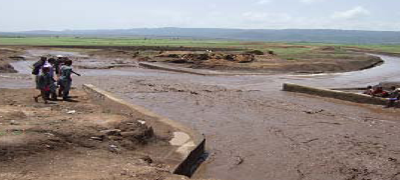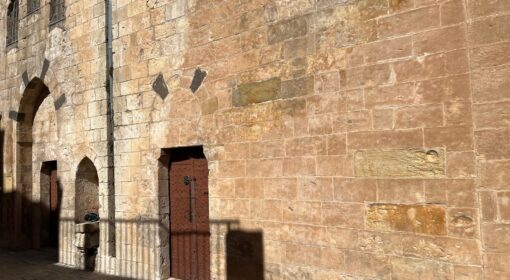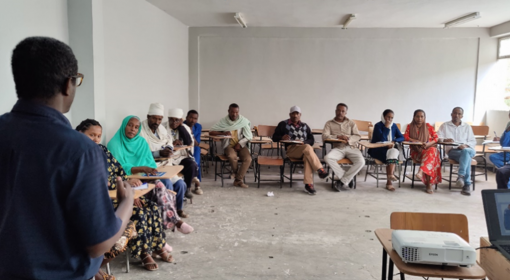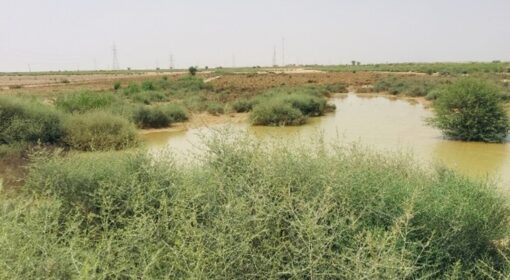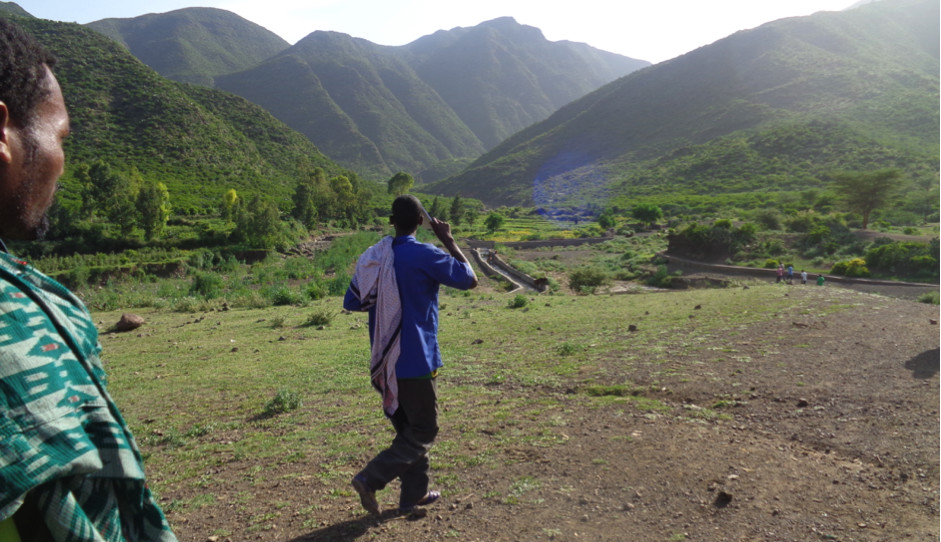
Like in other Kingdoms of the world, the Raya-valley farmers have their own rulers, the Kings of Spate. These Kingdoms are different, because the ‘King’ is elected every year and called Abo Mai meaning “Father of the Water”. This father has to be loyal, workaholic, transparent, enthusiastic and above all put community interest on the first place. This Father can be elected for many years depending upon his performance. His main responsibility is to follow up all activities regarding spate irrigation, such as planning, scheduling and calling for meetings to discuss the spate. This system, beyond its agricultural significance, has a great meaning for the community. The spate kingdoms have different social and traditional values.
In a typical Kingdom, there are 45-60 farmers which use traditional flood diversions systems called Moliiens. Based on their administration system, there are a number of Kingdoms in each river from upstream to downstream. Mollien’s consecutively run in the main river from upstream to downstream. The function of this traditional diversions is to divert some part of the flood from the main river stream flowing down from the mountains. Maintaining canals, upper catchment treatment, sediment clearing and water allocating are some of the activities in the Moliiens. Every farmer has to participate in all activities if not the farmer will get fines. The fines could be with money or may not consider in the water allocations in the coming floods. Every Farmer in Raya participates in voluntary works at least for 21 days a year in the upper catchment treatment soil and water conservation works. This voluntary work is facilitated by the King.
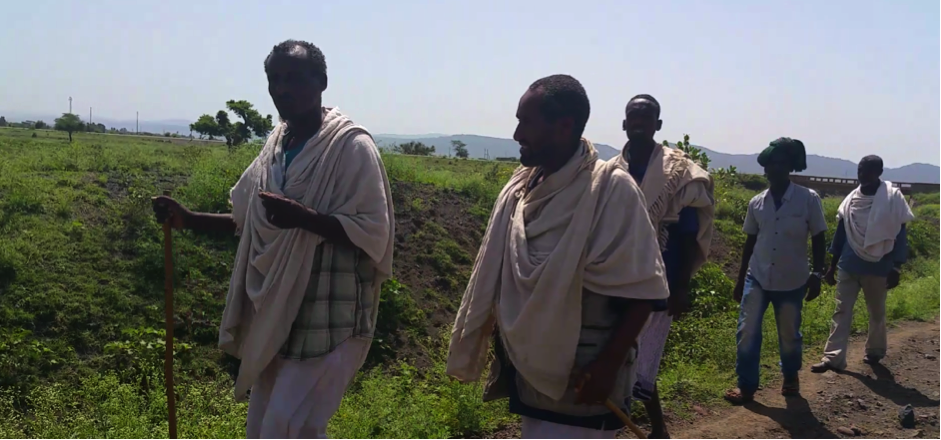
The farmers have been using this system as their culture for centuries. Spate in the valley means using ephemeral floods for agriculture as part of their life. In this system, floods are seen as a blessing. With floods they produce Sorghum, Maize and Teff. Animal fodders also. Though floods are useful, here the moments are tough they need good management and administration.
If conflicts occur in the area, depending on the reason of the conflict, the King will judge based on their traditional local rules. If the conflicts can be not solved by the King, he will call the older peoples from the community and representatives of those who are in conflict. The discussion will start from people who are in conflict. They will have to clarify why they are in conflict. The older people and the king will see the case and judge. The fines could be in money or community service. Depending on the case they can put compensations also. All the farmers believe in this local rule and follow the instructions of the King they elected.
There is much to learn from Raya for the rulers of the modern world. There is no absolute claim to leadership – authority depends on performance and on personal ability. Decisions are made with a larger group and the council of seniority is respected. Penalties come in the useful shape of community services.
